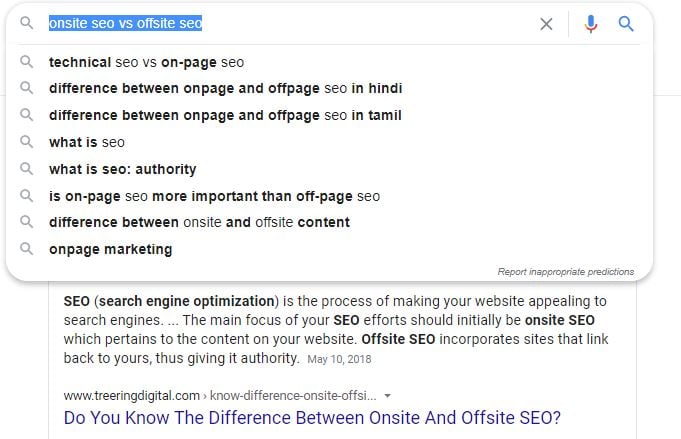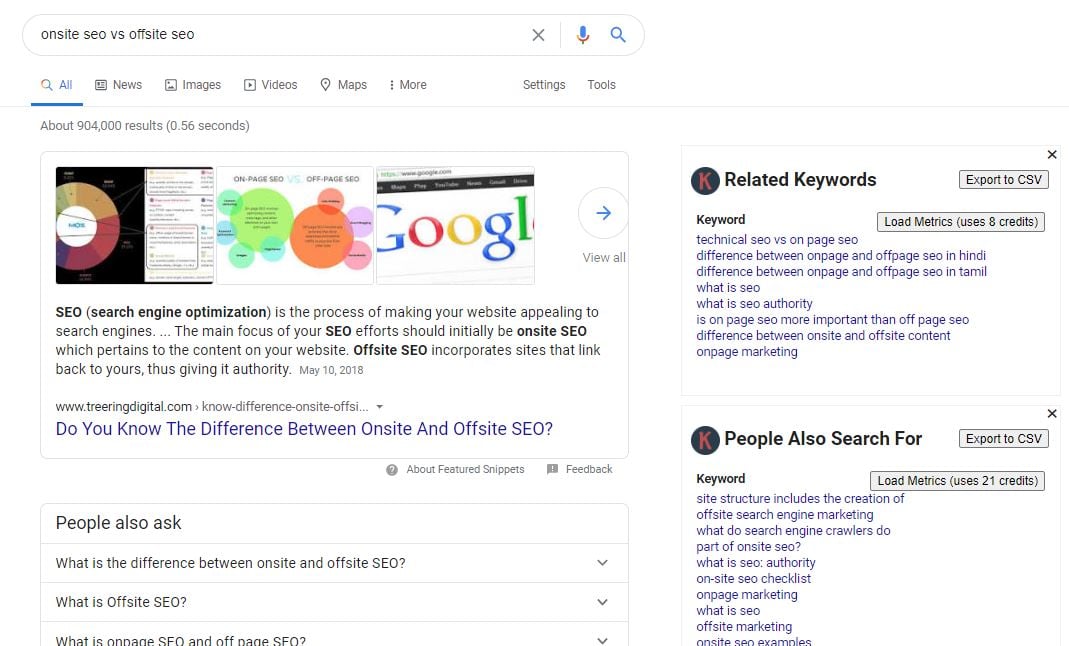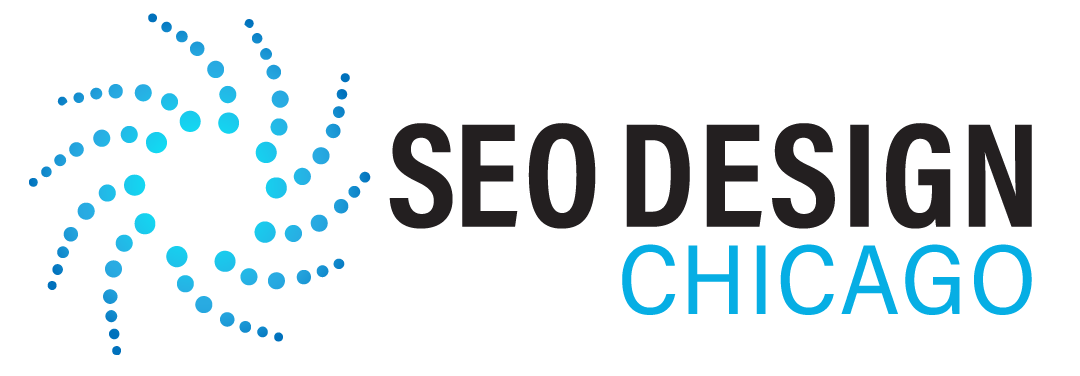This article identifies the differences between on-site SEO and off-site SEO, as well as the optimizations that you can make to appear better in search. A good step for any business to identify what SEO issues that their website has is to conduct an SEO audit

Let us start with the difference between on-page and off-page SEO
Many business owners talk about the need to enhance their website SEO; however, some are unaware of what the best strategies are to accomplish this. Some of the optimizations that we can do to our websites are with the content management system we are using, while others are offsite and can take an experienced SEO team to accomplish.
Table of Contents
On-Page SEO
On-page or onsite SEO is also referred to as technical SEO. Technical SEO optimization involves a road map for future content creation as well as a structure to how your website is built. To succeed at technical SEO, all your teams need to be working in concert. Your marketing team, writers, web development and sales team (if applicable) should ideally be working together for the quickest and most efficient strategy.
Team work aside, the first step is understanding technical optimization techniques and identifying the pages of your current site that are successful and the pages that need help. Technical SEO efforts should have an ongoing focus targeting:
- How do search engines read and process my website?
- How are users interacting with my website?
- Is my website structured in the best possible way?
- Do my website pages have the proper titles, tags, content and structure?
- Are my website pages optimized for specific keywords or ideas?
- What is the best internal linking structure for my website?
Search Engine Optimization
Search engine Optimization or SEO is simply creating and displaying content on your website that is optimized for search terms. On Page SEO will consist of optimizing for users on all types of devices that visit your website including mobile, tablet, and desktop and creating the best possible experience for users on each individual device.
Tag structure is particularly important as well so that search engines like Google, Yahoo and Bing can understand the data, structure and flow of the web pages on your site. This means that all pages should focus on specific keywords or ideas and have a purpose to achieve the best search query results in search engine ranking. All pages need to have proper header tags, proper meta descriptions and even proper page titles.
Further optimization of alt text, header tags and optimization for specific keywords set apart the novice SEO’s, from the advanced SEO practitioners.
UX Experience
(UX) or user experience begins with the initial design of your website. Web developers or graphic designers will either use templates or design custom websites. The way that users can interact with your website dictates the quality of mobile experience. Google now prioritizes the sites that have the best mobile experiences for its users since most internet users are now using mobile devices to surf the web.
Good user experience incorporates branding, function, design and integration of the products or services that your business is selling. It is important for your website to be built and optimized so that it is easy for users to click the right buttons and navigate to the places that they need to get to. After great user experience comes CRO or conversion rate optimization to increase conversions.
We have all seen websites that are not optimized, and we have all abandoned sites for this reason.
HTML Tag Structure
How do you optimize your tags properly?
HTML header tags are used to separate the headings (h1) and subheadings (h2-h6) of a web page from the rest of the content on the page.
Title Tags
The best title tags tell users and search engines what the page is about. Title tags are typically referred to as H1s by the SEO community. Good practice is to incorporate the keywords that you are targeting into your SEO page title at the top of the article and the literal name of the page on your website.
H2-H6 Tags
H2 tags and deeper sub headers help the content to be broken up so that search engines and readers can understand it. Using a common structure for the way that you construct articles helps to achieve a similar tone of voice and tone throughout your website and content.
Meta Tags
Meta Tags indirectly help your web pages get clicks by highlighting what is on a page when a user sees the page in SERP results. By optimizing these meta tags or meta descriptions, you can have a big impact on your click through rate from users.
Optimized Tags for your Website
What are the rules for tag optimization?
As a basic rule, h1s and sometimes h2s should contain your focus keyword or variations of your focus keyword. As a rule of practice, we like to also use the focus keyword, or variations of tenses of the word throughout the text multiple times starting with an insertion in the first few sentences.
H2 tags and deeper sun header tags should be optimized for related keywords or contain variations of the focus keyword as well. Proper header tag usage in blog posts and other content is an easy optimization technique you can employ to increase your keyword ranking factors.
How will you rank for your focus keyword if you use it only 1 time in a 1500-word body of text? Pro SEO’s will use the keyword an appropriate amount of times in the text based on how long the text is. If you are working on optimizing a WordPress website, you can also use the Yoast plugin that will give you lists of ideas to optimize each post or page of your website
Content Optimized for Keywords

How do you optimize pages of your website for keywords?
The first step to optimizing an existing website for keywords or creating new content that is optimized for keywords is to discover what keywords you want to use. Looking at keyword opportunity is a great way to begin identifying what words you want to go after to increase your page ranking.
The first step for keyword ideas should always be looking at your competitors’ sites and making a list of keywords that you think that you would like to rank for. After generating this list it’s time to look at additional software and tools that you can use to build your strategy.
SEO Tools that you can use for finding great keywords:
Google Ads – The Keyword Search Tool is a great resource for keyword ideas
Google Suggested Queries – Those suggested queries that pop up are great ideas for what to write content about and what keywords to focus on in your content

SEMRush – SEMRush has expanded some of its tools recently, the keyword GAP tool is a great one for SEO’s to identify keywords based on what their competitors rank for.
Ahrefs – Ahrefs has several great tools that you can use to get ideas. We like using the questions option with a large group of keyword ideas so that we can generate blog topics.
Keywords everywhere Plugin – This is a free plugin that has paid features as well. This will automatically grab the initial Google suggested queries and give you a bunch more ideas.

Internal Linking
We will get into external linking with offsite SEO but let us talk about the value of Internal linking. All the pages of your website have value. You can pass value among your pages using an internal linking strategy. If you have a lot of content on your site, this is the first step a SEO consultant should take in order to get more traffic to new blogs as well as spread some of that page authority among other pages of your website.
Think of internal linking as a map for the search engines showing you how to get around when they get to your neighborhood, or website
Off-site SEO or Off-Page SEO
Off page SEO is primarily the strategy of building links from other websites to your own website, and the best way to do this is with good content. Link Building is a huge part of offsite SEO, but strategies that work go way beyond just getting links. Links can be obtained through local citation services, forums, influencer outreach and even content marketing strategies among other ways.
Content Creation
Websites will not want to link to your website naturally if you have bad content. If you create good, original content using experienced SEO writers, your battle will be easier to the top. Once you identify the topics that you want to write about or rank for, it is a matter of writing, internal linking and optimizing to get closer to the top. Talk with an experienced content creation agency to set up a content generating plan if you do not have the capability in house.
Link Building

What is the best way to build links? Do it naturally.
Every type of business needs a unique strategy to rank higher in local search or regular searches. Local Search optimization involves your business being found everywhere that customers are looking for your type of service.
Link Building strategies also should involve networking with businesses in your industry to get links to the content that is relevant on your website. Reaching out to influencers, guest blogging, PR companies and industry affiliations can prove especially helpful for link building efforts. When you combine your link building activities with social media promotion you can achieve even better effects.
On-page SEO versus Off Page SEO

On page SEO and off page SEO are both important to a targeted SEO strategy for your business. Work with an agency or staff that has experience building SEO value for other companies. Look for partners that you can have a relationship with that will explain what and why they are doing specific SEO activities. Make sure that the reporting you receive is tailored for your needs instead of something generic.
[/col] [/row]


Contact Us Today!